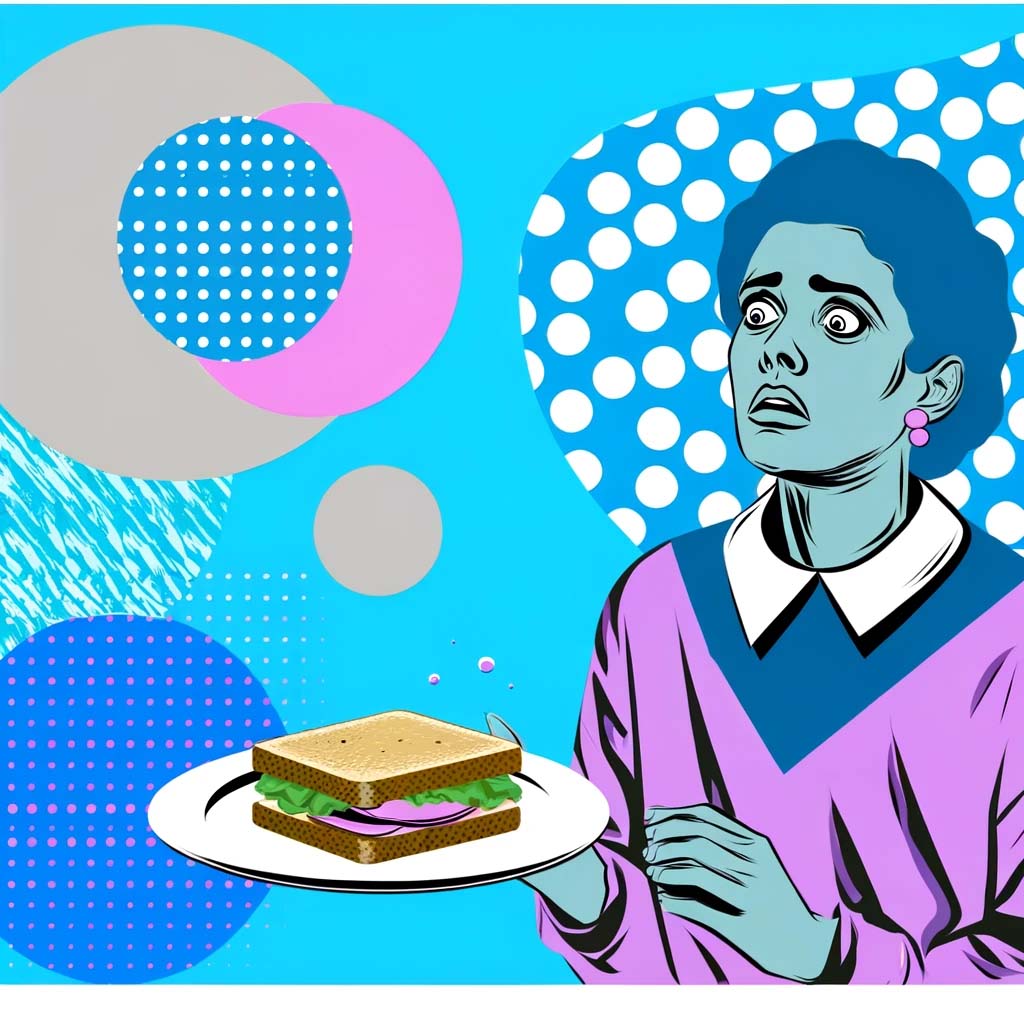Nighttime can be a particularly challenging time for those struggling with emetophobia, the fear of vomiting. The quiet solitude and lack of control often exacerbate anxieties, turning a simple night’s sleep into an ordeal. To effectively manage your emetophobia at night, it helps to understand what makes those dark hours so uniquely challenging. Here are some explanations and tips on how to cope with emetophobia at night:
Why Nighttime Feels Different:
- Physiological Changes
- Digestive Slowdown: Our digestive system naturally slows down during sleep. For some with emetophobia, this normal bodily function acts as a trigger, stoking fears of waking up feeling nauseous or being ill during the night.
- Reduced Sensory Input: At night, there are fewer external stimuli and distractions. With less to focus on, the mind can become consumed by anxious thoughts and an intense awareness of internal sensations, making even minor bodily changes feel amplified.
- Disrupted Sleep and Fatigue: Anxiety itself can lead to disrupted sleep patterns and fatigue. This, in turn, can worsen feelings of nausea or bodily unease, creating a vicious cycle for those with emetophobia.
- Psychological Factors
- Fear of the Unknown: Nighttime can feel less predictable and controllable. For anyone with anxiety, the darkness can bring on a sense of heightened vulnerability, compounding the fears associated with emetophobia. Feeling alone and isolated with limited escape route while everybody else is asleep intensifies fears making the anxiety harder to control.
- Loss of Coping Mechanisms: Many coping mechanisms people rely on during the day, such as social interaction, engaging activities, or even the simple comfort of daylight are less accessible at night. This can lead to feelings of isolation and helplessness.
- Past Negative Experiences: If someone has had a traumatic vomiting experience in the past, especially during the night, darkness can act as a powerful trigger, reawakening those memories and fueling anticipatory anxiety.
- The Power of Anticipation: The night often becomes a time of worry and rumination. People with emetophobia may spend hours lying awake, fixating on the possibility of getting sick, which only escalates the anxiety and can even become a self-fulfilling prophecy.
Developing a Nighttime Routine:
- Relaxation Techniques: Before bed, incorporate relaxation techniques like deep breathing, progressive muscle relaxation, or guided imagery. These practices can help calm your mind and body, promoting a peaceful state of mind.
- Create a Soothing Sleep Environment: Ensure your bedroom is cool, dark, and quiet, conducive to relaxation and sleep. Consider using calming scents like lavender or chamomile aromatherapy.
- Mindfulness Practices: Engage in mindful activities before bed, such as journaling or meditation. Focusing on the present moment can help redirect the mind away from anxious thoughts.
- Develop a Consistent Sleep Schedule: Go to sleep and wake up at the same time each day, even on weekends, to regulate your sleep-wake cycle and promote deeper sleep.
Coping with Nighttime Anxiety
- Distraction Techniques: If worry consumes you, try reading a light book, watching a movie, listening to a calm podcast or music, or doing a simple puzzle to distract your mind.
- Reality Checks: Remind yourself that your fear is greatly exceeding the actual risk. Practice rational self-talk like, “Feeling nauseous doesn’t always mean I’ll get sick.”
- Get out of Bed (briefly): If you can’t sleep after 20 minutes, move to a different room, and engage in a quiet activity until you feel drowsy. Avoid tossing and turning in bed, as this can strengthen the association between your bed and anxiety.
- Nighttime Support Plan: If possible, pre-arrange a plan for reaching out for help during a panic attack (i.e., having someone you can text for reassurance). Explain your phobia to a trusted friend or family member. Having someone who understands can be invaluable during those lonely nights.
- Online Support: Emetophobia support groups or forums provide a sense of community and access to people who understand your struggles.
Additional Tips
- Evening Meals: Eat dinner early enough for digestion. Avoid trigger foods or large portions close to bedtime.
- Hydration: Stay well-hydrated throughout the day, as dehydration can sometimes contribute to nausea.
- Self-Compassion: Acknowledge the difficulty of what you’re facing. Be kind to yourself as you work towards greater peace, especially during setbacks.
Seek Therapy and Treatment
- Talk Therapy: Cognitive-behavioral therapy (CBT) helps you identify and challenge the negative thought patterns driving your emetophobia.
- Exposure Therapy: Gradual, controlled exposure to feared situations or triggers over time can desensitize you and build your resilience.
- Medication: Anti-anxiety or anti-nausea medication might be recommended, especially in the short term, to lessen severe symptoms as you work on coping skills.
By implementing these strategies, developing a supportive network, and seeking professional help when needed, you can manage your emetophobia at night and reclaim your sleep, allowing you to wake up feeling refreshed and ready to face the day. How about yourself, how do you cope with emetophobia at night?
Disclaimer: This article is for informational purposes and should not replace professional guidance.





0 Comments